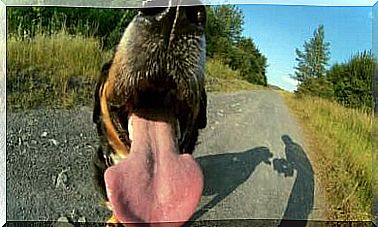Distemper In Ferrets: Causes, Symptoms And Treatment

The ferrets have become fashionable in recent years, as pets. But few people really know what it takes to take proper care of them. For this reason, from our pages, we always try to inform you and give you specific advice. This time we will cover the topic of distemper in ferrets, so that you can respond and take effective action against this annoying problem.
What is distemper in ferrets
Distemper is a well-known disease in other pets, such as dogs. However, it can also affect your ferret and it is therefore worth getting to know it better. It consists of an anomaly caused by a virus that can be transmitted by air or by contact with other living beings who are already sick.
Unfortunately, many ferrets die from distemper every year, so preventative medicine plays a key role. And, above all, knowing how to recognize any symptoms in time. Get well informed and be prepared, in case of need, to ask for the help and intervention of a veterinarian expert in this type of animals.
Causes of distemper in ferrets
The filterable virus responsible for the disease belongs to the Paramyxoviridae family and the main way to get infected is by coming into contact with an infected animal. We are obviously talking about another ferret, a dog or any other wild animal that can potentially contract distemper.

Contact with the feces or secretions of a sick animal can be another cause of distemper in ferrets. In fact, even an object that an infected dog has used and that your ferret later bites or licks, can make him sick, even if several hours pass after contact. This is because distemper viruses can survive for hours, externally and attaching themselves to something. In this case to an object such as, for example, a toy.
Even you yourself may inadvertently infect a distemper ferret. If you visit an animal with this virus and you do not disinfect yourself well, before entering the house, you could carry the virus unscathed on your clothes or shoes.
Symptoms of distemper in ferrets
Now, how to tell if a ferret has distemper ? There are some easily recognizable symptoms that you should be able to identify, in order to intervene as soon as possible. This is essential because the mortality rate of distemper in ferrets is 99% and many of these deaths occur because the disease is not caught in time.
The first thing to know is that the disease has an incubation period of 10 days, so when you start taking countermeasures, it will take some time for the animal to fully recover. Acting quickly is vital to saving the life of your beloved pet.
You must observe your ferret carefully and act immediately, going to the vet as soon as you notice one or more of the following symptoms:
- Ocular and / or nasal discharge.
- Eye infection.
- Apathy.
- Numbness.
- Loss of appetite.
- Depression.
- Diarrhea.
- Dehydration.
- Sensitivity to light.
- Temperature.
- Peeling of the skin.
These are the most common: if you notice any other changes not on this list, you will need to take the ferret to your trusted vet right away. These little mustelids are very susceptible to disease, so to save their life, you need to act quickly.

Treatment for distemper in ferrets
There is no general treatment for distemper in ferrets. But there is a specific cure available for each of its symptoms. That is why, as we have told you, in the presence of one of these you should immediately go to the vet.
The prevention is always the best medicine possible, but be careful when in contact with potentially infected animals and especially keep updated vaccination booklet, especially the one against distemper.
We hope we have provided you with all the information you need to prevent your ferret from contracting this almost always deadly disease. If you act in time, your pet will be able to defeat the virus and return to a fully normal life.








